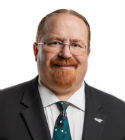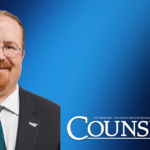Share
As counselors and healthcare professionals, we all know that treatment decisions can sometimes be affected by the personal biases, professional histories, and educational backgrounds of those who serve people seeking remedies to healthcare issues. We can second guess our decisions, and at times, regret some that we have made. As an industry, we strive to understand how our own perspective can alter the care that our patients receive. As a whole, we tend to be aware of the implications that biases can portend. We seek out the counsel of our colleagues and we inventory our own views about approaches to treatment. Basically, we seek to minimize our subjectivity in a field where subjective decisions are often required.
I wish I could say the same thought process is prevalent in the rest of our healthcare system. Unfortunately, many in the medical profession are unaware of “medical gaslighting,” especially when it comes to symptoms of addiction.
Gaslighting is when someone in power uses manipulation to make another person doubt his or her judgment, or even sanity. Medical gaslighting has its origins in the physical treatment of women. Early physicians would dismiss women’s health problems, enforcing the misogynist stereotype that women are irrational and “hysterical”, not able to logically express what is happening with their bodies. (Noe Pagán, 2018). The women’s movement gradually empowered patients to reject condescending and minimizing behavior from medical professionals. For people with addiction, we face similar circumstances: physicians and other healthcare professionals willing to support denial; systems of care that gatekeep access to treatment to reduce bottom lines; and individuals who are willing to accept a diagnosis that “you’re just not broken enough to need care.”
Medical professionals’ influence on individuals in pre-contemplation or contemplation stages of addiction can have a profound impact on their perception of their health status and the need for intervention. A doctor’s confirmation that they do not have a problem can be deeply affirming and celebrated by those in active addiction. As doctors are often regarded as authoritative figures in matters of health, receiving a “clean bill of health” and a warning to cut back may inadvertently hinder progress towards acknowledging and addressing addiction issues, leading to disease progression for many.
As addiction professionals, we cannot change the medical or mental health profession’s inability to set aside its own biases and stigmatization about addiction, although we may continue to try. It is incumbent on us to discuss medical gaslighting with our patients and their families. Understanding how to recognize it and how to respond to it are key to more effective doctor or therapist/patient relationships when it comes to addiction. Following are signs that one might be experiencing this type of gaslighting:
- A provider does not encourage a patient to elaborate and doesn’t appear to be listening.
- A provider minimizes or downplays symptoms, for example questioning whether one is binge-drinking, not having “actual” symptoms of addiction.
- The provider refuses to discuss the severity of one’s symptoms (the belief that all people with addiction sleep in a homeless encampment, so you must not have an addiction).
- The provider will not order an assessment from a professional with expertise in addiction.
- A provider jokes about, cheers on, or belittles attempts to address substance use behaviors.
- A provider justifies a patient’s substance use by recollecting their own experiences with substance use (yeah, I drank a lot in college; boy it was fun).
- Symptoms are blamed on mental illness, but no mental health referral is made.
- Patients seeking help, especially prescription medication, at emergency rooms can often find themselves stigmatized and labeled as “pill seekers” by medical staff. This negative perception may lead to their names being added to a black list, further marginalizing and limiting their access to appropriate medical care.
As professionals in the treatment of addiction, we must also apply our advocacy to fix the broken screening tools in our healthcare system. Laws to require screening for mental health and substance use disorder have been reduced to a laminated checkbox sheet given to patients when they go to their primary care physician for any need. Asking a patient to self-disclose on an erasable form while sitting in a waiting room is not truly screening for addiction. It is a way to meet a statutory requirement while ignoring the intent of the statute. We must do better. We must encourage our clients to openly express their symptoms with their healthcare team and to be mindful of gaslighting.
When gaslighting occurs, patients need to be prepared. They can document their symptoms rather than checking boxes that will be ignored. They can bring a support person who can affirm what might be being experienced by the patient. They can bring a list of specific questions about symptoms and possible treatments and they can ask for a referral even if the physician seems unwilling at first. Most of all, our clients need to be reminded that they have rights and that they would never accept a pair of crutches as treatment for a broken leg. Taking “no” for an answer to one’s treatment needs gives power to the gaslighter.
References
- Noe Pagán, C. (2018, May 3). When doctors downplay women’s health concerns. The New York Times. Retrieved from https://www.nytimes.com/2018/05/03/well/live/when-doctors-downplay-womens-health-concerns.html. Accessed 2021, March 29.
About Me
Pete Nielsen is the President & Chief Executive Officer for the California Consortium of Addiction Programs and Professionals (CCAPP), CCAPP Credentialing, CCAPP Education Institute, and the National Behavioral Health Association of Providers (NBHAP). CCAPP is the largest statewide consortium of addiction programs and professionals, and the only one representing all modalities of substance use disorder treatment programs. NBHAP is the leading and unifying voice of addiction-focused treatment programs nationally. Mr. Nielsen has worked in the substance use disorders field for 20 years. In addition to association management, he brings to the table experience as an interventionist, family recovery specialist, counselor, administrator, and educator, with positions including campus director, academic dean, and instructor.
Mr. Nielsen is the secretary of the International Certification and Reciprocity Consortium and the publisher for Counselor magazine. He is a nationally known speaker and writer published in numerous industry-specific magazines. Mr. Nielsen holds a Master of Science in Counseling Psychology and a Bachelor of Science in Business Management.












 Counselor Magazine is the official publication of the California Association of Addiction Programs and Professionals (CCAPP). Counselor offers online continuing education, article archives, subscription deals, and article submission guidelines. It has been serving the addiction field for more than thirty years.
Counselor Magazine is the official publication of the California Association of Addiction Programs and Professionals (CCAPP). Counselor offers online continuing education, article archives, subscription deals, and article submission guidelines. It has been serving the addiction field for more than thirty years.